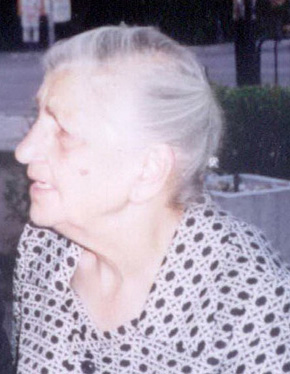“When I call to remembrance the unfeigned faith that is in thee, which dwelt first in thy grandmother Lois, and thy mother Eunice; and I am persuaded that in thee also.”
2 Timothy 1:5
My Grandma, Todorka Mindova, was one of the first Sunday school teachers in the Bulgarian Pentecostal Union. After successfully graduating from a training course in the city of Sliven led by Donka Kinareva and personally organized by Dr. Nicolas Nikolov, she was allowed to minister in the denomination. But for grandma, the faith was more than teaching or a sermon. It was life. Many Bulgarian Pentecostal ministers can testify to the effectiveness of her ministry. And for her constant fasting and thousands of answered prayers I could write a book.
But far more interesting for me as a child was the fact that being a Sunday school teacher, Grandma never tried to preach to me. In the hardest moments of life she would only confess these words, which I have remembered from my childhood: “We serve a living God.” More was not needed. For Grandma preached with her life.
This I know from personal experience, because after she had been interceding for me in prayer for more than 16 years, God saved me in the Pentecostal church in Yambol without anyone evangelizing or preaching to me. There, at the last pew by the back wall, God saved my eternal soul and my young life was transformed completely. Not through human words or sermons, but through the testimony of her life in which He was revealed as a living God. For the ones who have known Him as a living God, preach with their lives.
When several months later God called me to the ministry in the Church of God in Pravetz, I met people who knew the living God just like Grandma. Their personal experiences gave them the strength to survive the persecution of the communist regime and the sentence of the brutal life. These were presbyters, who preached the message of the crucified God regardless if it cost them their own lives, because they knew Him as the resurrected and living God. A mother, who gave her leukemia stricken son to the prayers of the church and the living God returned him to her forever healed. A family, that lost their young son, but continued to minister before God. People, who endured the persecution of the regime and the hardship of life, for whom their faithfulness to God needed no rational explanation. They testified with their lives that God is alive and their testimonies were the very reason hundreds of students in Pravetz received Christ as a personal Savior. Because, through the testimony of the lives of one generation, He reveals Himself as a living God to the next generation in a spiritual revival, which changes history itself.
Thus preached the ancient. Abraham, Isaac and Jacob. And from their testimony Jesus Christ alone made that marvelous conclusion that no mortal theological mind could birth: “He is not God of the dead, but of the living” (Mark 12:27). Through my eleven years of formal theological education, I have not read a more powerful interpretation of the Biblical text. Such conclusion cannot be reached by any hermeneutical methodology, semantic exegesis or ontological paradigm. Such interpretation of the Word can only be given by the One who lives over death. Because He does not speak about Abraham, Isaac and Jacob in the chronological order of the historical times, but simultaneously, as One who is independent of time and as One who is life itself.
For this reason, the apostles of the Early Church called Him “God of our fathers”, having the understanding that the faith in the living God is handed down from generation to generation. And not just faith, but the Gospel which finds its eternal power in the Resurrection of the Son, in order to become a living faith, which makes us live as He lives. Otherwise, how would we be different from any other religion that serves handmade idols and dead gods? Is it not by the fact that He cannot be found in the death of the mortals? For He is God alive forevermore.
If He was not a living God who could raise from sin and death, the sermon of the Early Church would have been empty, their faith without foundation, their hope without reason, their sacrifice in vain, their testimony untrue and their expectance of His Parousia absurd. But they knew. Even if we have forgotten today, they knew. The ones who had written the words of the gospel story, they had touched the stone that rolled away, they had seen the shroud put aside and they heard the words of the angel: “He is not here, for He has risen.” For this very reason, when they were sentenced without fault, the first Christians preached that He is alive. And even when they were killed in the arena of the gladiators, thrown to the hungry lions, burnt as human torches at the Roman aqueducts, sentenced to die through dismembering, stabbed and beheaded, crucified upside down along the roads of the empire before the eyes of one whole sinful world, they looked up toward the Coming One and with their life and death preached to the generations to come: “Alive, alive, alive forevermore.”
God is still alive in Bulgaria today. The ones, who were saved in the revival 20 years ago, knew him as the living God. But does our generation, having known Him then as a living God, live now as if God is dead? Have we kept the faith in the living God as we received it, so we can give it to our children? And how do we preach the living God? With quarrels, divisions and divorce or with the power of our testimony? So that the generations may say about us that we have preached with our lives. And not just our small, poor and mortal life, but His: the eternal life of the living God. For, “Alive, alive, alive forevermore. Jesus is alive.”
San Francisco, 2009



Comments